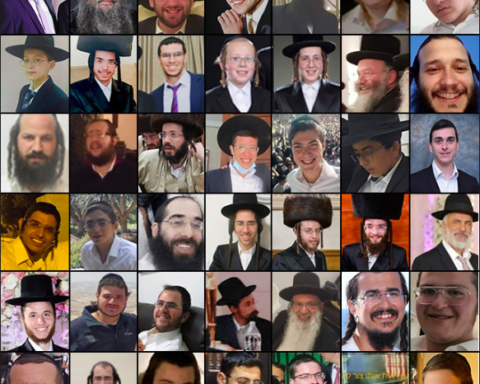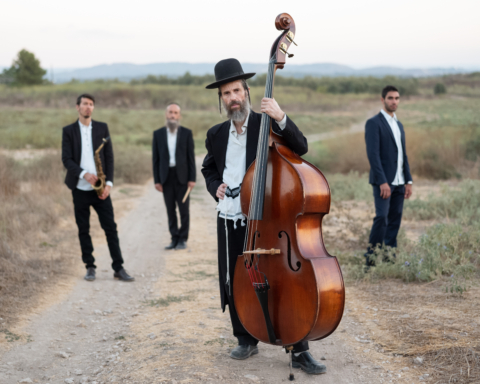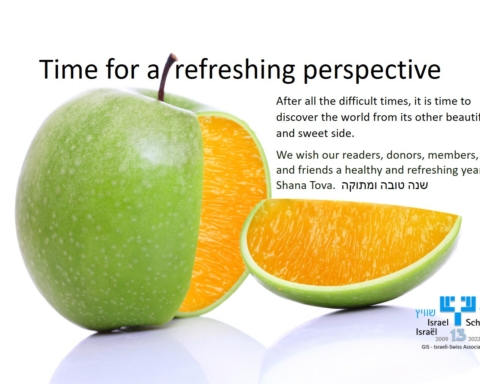“I never thought I’d get to hear one of my texts read out in Hebrew,” says Sherko Fatah with a smile, readily admitting he did not understand a single word. The Berlin-based author is one of ten writers who have contemplated the question of “How will people in 2065 feel about our present time?” Ten stories were the result.
Future x 10
In the early summer of 2015 the Goethe Institut and the Heinrich Böll Foundation had commissioned five German and five Israeli writers to compose pieces of prose on the topic of assessing our present time retrospectively from a 2065 viewpoint. The contents of the essays penned as a result differ as vastly as the biographies of the authors that wrote them. Take Sherko Fatah, for example, who in 2015 was honoured with the Berlin Art Prize. His literary output to date has strongly focused on the violent conflicts in the Kurdish borderland between Iran, Iraq and Turkey. For the assignment, Fatah chose to conduct a fictitious interview with a professor in 2065. “Around 2015 the mass exodus via the Mediterranean of war refugees from the Middle East on the one hand, and Africans on the other, hit a first real peak. The Mediterranean became a natural border, and a new kind of European was invented, culminating in a new species of citizen we refer to as the ‘transit European’ still today.”
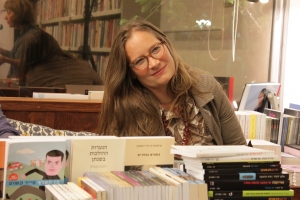
In her story, German writer Tanja Dückers describes the world as seen through the eyes of her own granddaughter. “Fifty years ago,” we read, “New Feminism was a hotly debated topic. As we all know, Hillary Clinton was elected the first female president of the United States back then.” Half a century on, in Dückers’ vision of the future women have been excluded from the labour force. To produce the obligatory offspring of five children and thus avoid the 80 percent tax penalty imposed on failing to meet this target, women have to be well-nourished and healthy. A task that is so time-consuming that the women’s quota has been abolished and the mothers’ quota introduced in its place. A positive side effect in Dückers’s future scenario: Women no longer suffer from anorexia.
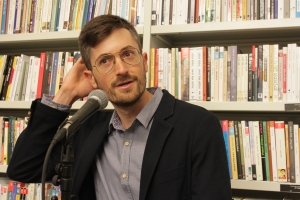
Israeli author Ron Segal, who has been living in Berlin on and off since 2009, has written a kind of travel diary. In ‘Travel Diary’ Segal blends the two worlds of Eleasar, his grandfather. “Eleasar’s coordinates have deserted him, abandoning him and flying off in all directions, uncontrolled and unbridled, like coloured bands on the wire housing of a ventilator running at full speed. He sneezes in Berlin and hears ‘labriut’ in Jerusalem; he crosses a road in West Jerusalem and just about escapes getting run over by a tram in East Berlin.” Ron Segal’s piece is infused with a sense of acute comedy: “It was just so irritating to see him walk the streets of Berlin in this flimsy windbreaker in winter or see him stew in his own sweat as he had donned a German parka during a Jerusalem heatwave. Indeed, Eleasar flitted between Jerusalem and Berlin with the same ease as he zapped between the TV channels with his remote control – but it wasn’t him doing the zapping.”
Today’s topics -> Tomorrow’s topics
Ruth Achlama, who translated “Travel Diary” into German, is among the audience this evening. She is attending the reading in a dual capacity – she also provided the translation for Maya Arad’s contribution. The latter is one of Israel’s highly acclaimed budding writers. Her main topics include migration and Israelis in the United States. Arad herself relocated to California in 2002. For the Literature Festival she composed a short story on life as a writer in 2015 and 2065: In 2015 she realises that she will not have a career as a critically acclaimed author of books. Which prompts her to publish on the Internet instead. Fifty years later, on her 100th birthday her family gives her a bound volume containing all her stories. The old lady is too touched to speak; unexpectedly she is holding her life’s work in her trembling hands – in print, not on an iPad. “The letters in front of her begin to dance. There is no mechanism to enlarge them by light sweeping gestures or make the screen brighter. The name of the author: Rawit Goren, her own pen name. The title: ‘A book of her own.’”
Other writers who took part in the German-Israeli Literature Festival are Yishai Sarid, Charlotte Kerner, Thomas von Steinaecker, Roman Ehrlich, Yiftach Ashkenazi and Orly Castel-Bloom.




